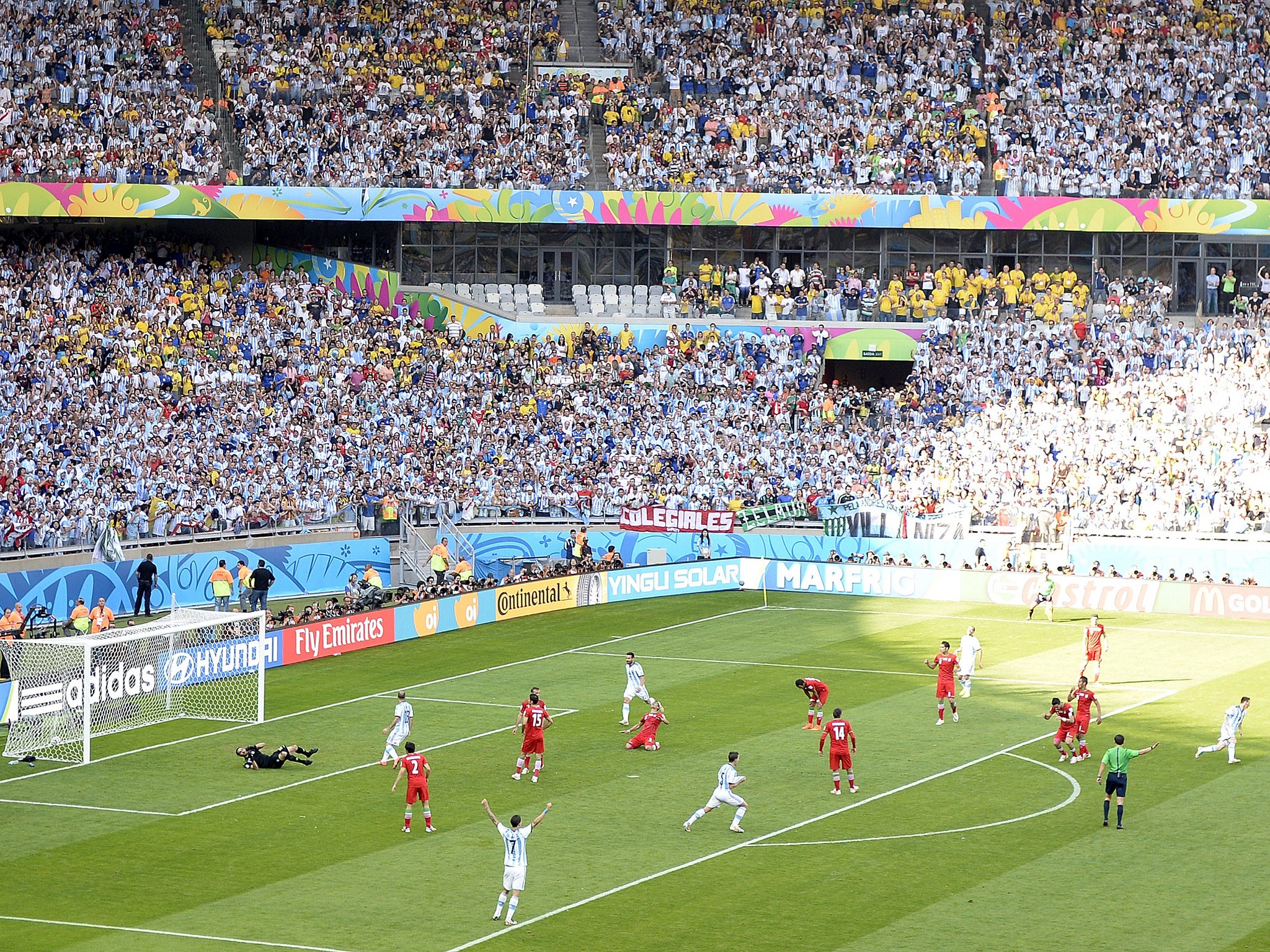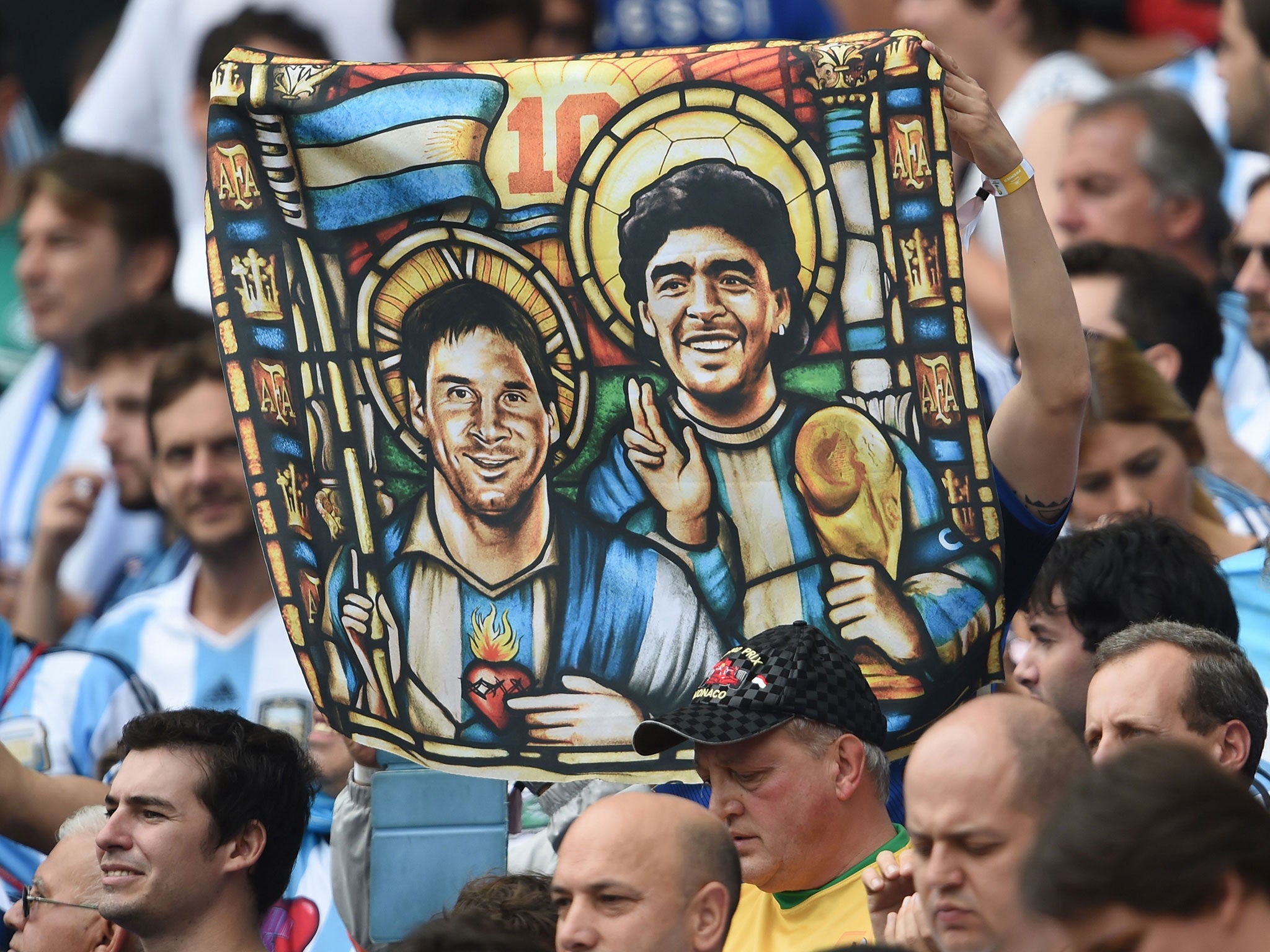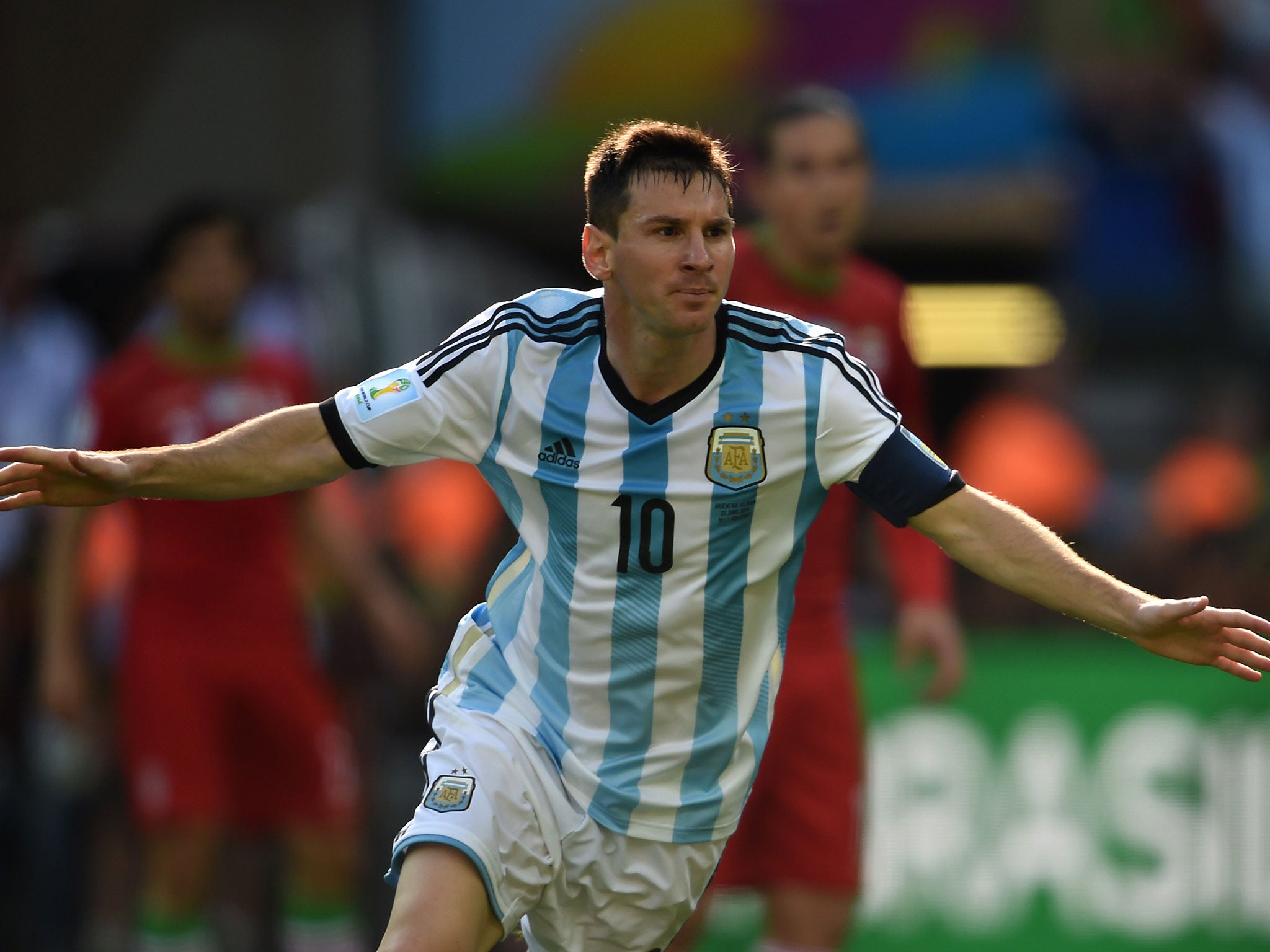Argentina vs Switzerland World Cup 2014 preview: Lionel Messi has chance to seal place with immortals at this World Cup
Even his team-mates seem in awe of the Argentina captain as they seek triumph to elevate him up with Pele and Maradona

Your support helps us to tell the story
From reproductive rights to climate change to Big Tech, The Independent is on the ground when the story is developing. Whether it's investigating the financials of Elon Musk's pro-Trump PAC or producing our latest documentary, 'The A Word', which shines a light on the American women fighting for reproductive rights, we know how important it is to parse out the facts from the messaging.
At such a critical moment in US history, we need reporters on the ground. Your donation allows us to keep sending journalists to speak to both sides of the story.
The Independent is trusted by Americans across the entire political spectrum. And unlike many other quality news outlets, we choose not to lock Americans out of our reporting and analysis with paywalls. We believe quality journalism should be available to everyone, paid for by those who can afford it.
Your support makes all the difference.There is a story told by Alejandro Sabella, the Argentina coach, in his foreword to the biography of Lionel Messi by the journalist Guillem Balague that tells you everything about the status of the greatest player in the world, among his peers. New to the job, Sabella embarks on a European tour to introduce himself to his players, and primarily the phenomenon who wears No 10.
Sabella wants to make Messi captain but, in order to do so, he had to take the job away from his Barcelona team-mate Javier Mascherano. Sabellla does not tell Messi that his decision is final, rather he “suggests that Leo should wear the armband of his national side” and leaves the two players to discuss it. Later, he recalls: “I think it was Javier who rang me up to say, yes, Leo would be the captain.”
There is something of the regal detachment about Messi that befits his status as the greatest footballer on the planet. Whereas with others it might seem cruel that the team-mate who had the captaincy taken away from him should be the man who calls the manager to confirm the decision, it seems entirely fitting in Messi’s case. He is, unquestionably, the king of the team. To be hurt at being moved aside for him would just be absurd.
Watch Messi with his Argentina team-mates and you witness something different to the normal interaction between footballers. They are devoted to him. Why wouldn’t they be? Even the biggest names in the squad jostle to be close to him when the players emerge after half-time, or try to say something that will crack a smile on that little poker face. These players suspect they are about to witness history made, to be part of it, and one man above all is making it happen.
Against Switzerland in Sao Paulo, Messi can take one more step towards the realignment of how we think about football and its history. If he were to win the World Cup with Argentina, playing as he is now, with four goals in the three group games, then he will ascend to the ultimate category of footballer. In 1986, a year before Messi’s birth, Diego Maradona joined Pele as the second great of all time. Then there are the rest. By the end of the summer, it could well be Pele, Maradona and Messi.

He needs a World Cup to put alongside those six league titles with Barcelona, the three Champions Leagues and four Ballon d’Or awards. Sometimes it feels ludicrous to demand more of a footballer who, just 27 last week, is four shy of 400 goals for club and country in his career. But success at a World Cup was central to how players were judged in the 20th century. To be the first immortal of the 21st-century game, Messi has to win the damn thing.
In Brazil this summer, away from the pitch his profile has been lower, naturally, than the ubiquitous Neymar, but it feels that way only for the sake of form. Messi is the man who has done it all, the World Cup aside. Of the animated Nike advert that was launched at the start of the tournament, three of the eight superstars featured have already gone home (Wayne Rooney, Cristiano Ronaldo, Andres Iniesta) two never made it (Zlatan Ibrahimovic, Franck Ribéry) leaving just Neymar, David Luiz and Tim Howard.

Meanwhile, Messi, an Adidas stalwart, has outperformed them all. His signature commercial on Brazilian TV begins with him asleep in bed, a nod to that detached, low-key style of his. He cultivates an indifference to all the spluttering incredulity at his achievements. He has 48 goals for club and country this season in 53 games. Yet when you look at his returns in earlier years, including the staggering 82 goals in 69 games in 2011-12, that counts as modest by his standards.
Messi’s career can be expressed in statistics, if that is your thing. The @MessiStats Twitter feed pumps them out at a fearsome rate. But nothing beats the goals, and those at this World Cup are shown over and over again on Brazilian television as if the country is forcing itself to face up to its worst fears. Argentina may not have Colombia’s all-round flair, but they have the best player in the tournament.
Against Bosnia-Herzegovina, having taken a return pass from Gonzalo Higuain, Messi ran from right to left but not once in that run does he seem to glance up. There is one final look before he receives the ball but not again before he dispatches it into the bottom left corner of the goal. There is a theory that he may plot his coordinates by the markings he sees on the pitch. Perhaps, after 396 goals for club and country, he just knows.

Balague’s book on Messi is a fascinating insight into the community in Rosario that produced the little boy who was dispatched, at 13 years old and just 4ft 10in tall, to Barcelona’s academy from his hometown club of Newell’s Old Boys. Messi’s family heritage is mainly Italian immigrants from the Marche region of the old country, as well as a Spanish great-grandmother. The maiden name of his mother Celia, whose face he has tattooed on his back, is the unmistakeably Italian Cuccittini.
This South American World Cup has been about the realignment of modern football away from its old powerbase in Europe. European teams have struggled here, not least the English, Spanish and Italians, whose newspapers have tried on a few occasions, and with little success, to interest Messi in his Italian heritage. What better to express that than the ultimate product of new world football?
Barcelona will always claim Messi as their own, understandably, because they footed the bill for the expensive hormone treatment he had as a child to aid his growth. Unlike Neymar, Messi never played professional football in South America. But he learnt to play the game, in those crucial formative years in Rosario, a city which has produced a phenomenal number of great players, including Jorge Valdano, Gabriel Batistuta, Mascherano, Angel di Maria and Ezequiel Lavezzi.
But there is only one Messi. His fame and reputation are so great now that after this summer they could be comparable even to Rosario’s most famous son who, surprisingly, was not a professional footballer. He was Che Guevara.
Join our commenting forum
Join thought-provoking conversations, follow other Independent readers and see their replies
Comments